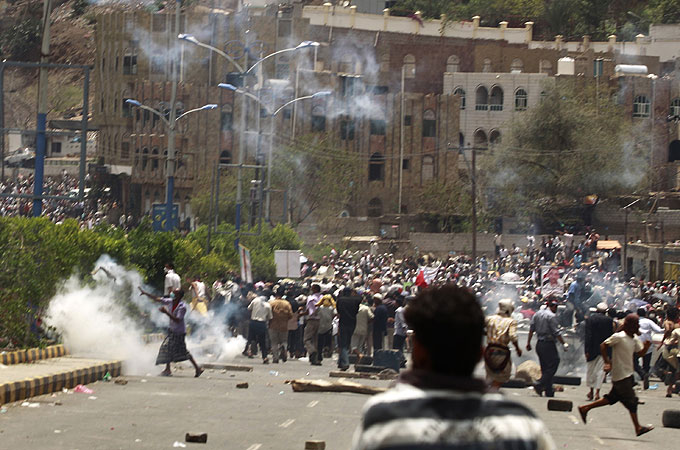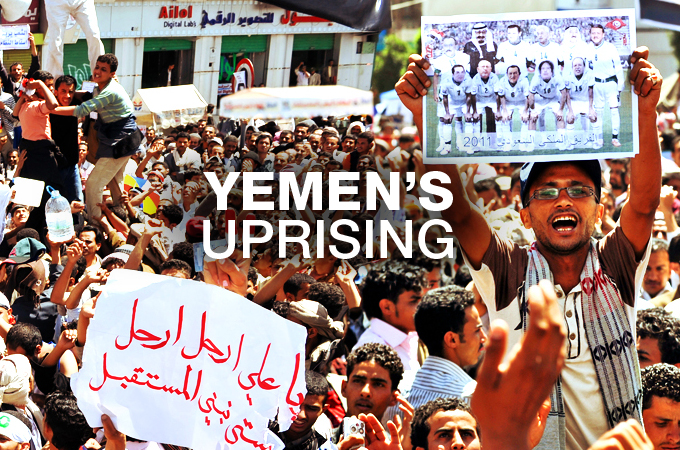Deaths reported in fresh Yemen protests
Sources say two people dead following police crackdown on separate anti-government rallies.

 |
| Clash between anti-government protesters and police has left more than 25 injured in southern city of Taiz [Reuters] |
Two anti-government protesters are reported to have been killed in separate clashes in Yemen as protesters continue to demand the resignation of the Gulf country’s long-serving president, Ali Abdullah Saleh.
One man was shot dead in the city of Ibb after plainclothes security men opened fire on Monday to halt a protest march, the Reuters news agency reported quoting medical sources.
A further 30 demonstrators were wounded, eight by bullets and the rest by stones and batons, the sources told Reuters.
The second protester was killed in the province of Al-Baida in Yemen’s south.
In Taiz, also in the south, 250 people were treated for inhaling tear gas and 50 were wounded – 25 by bullets and 25 by stones, medical sources said.
The day before, protesters in Yemen and other cities had reiterated their call for Saleh’s immediate resignation after his ruling party accepted a Gulf state-brokered plan for him to quit in 30 days.
They expressed concern that the plan could be a manoeuvre between Saleh and official opposition parties to share power.
The handover plan was drawn up by the Gulf Co-operation Council [GCC] and endorsed by the official opposition coalition known as the Joint Meeting Parties.
Gulf bloc’s plan
The GCC plan would see Saleh submit his resignation to parliament within 30 days, with a presidential vote to be held within two months.
He would be granted immunity from prosecution for himself, family and aides.
Tariq Shami, a presidential aide, told Al Jazeera on Saturday that Saleh had accepted in principle the proposal from the GCC that would see him step down.
 |
| Click here for more of our special coverage |
“The president has agreed and accepted the initiative of the GCC,” he said.
“The transition of power in Yemen will take some time. It needs an agreement between the national powers and the opposition at the same time. This thing will happen within 60 days if we have an agreement.”
The opposition coalition said on Saturday it had agreed to the main elements of the plan, although they had rejected a proposal to join a national unity government.
Mohammed Qahtan, an opposition spokesman, told Al Jazeera that a basis of trust is lacking for the opposition to join a national unity government, but that they would start a conversation regardless.
“The vice-president will take over for a certain period and then we will see what happens,” he said.
Yemen, with 23 million people, is one of the poorest countries in the Arab world, and demonstrators accuse Saleh of corruption and mismanagement during his decades in power.
In recent years he has positioned himself as an ally of the US against al-Qaeda, while also battling Shia Muslim fighters in the north of the country and separatists in the south.